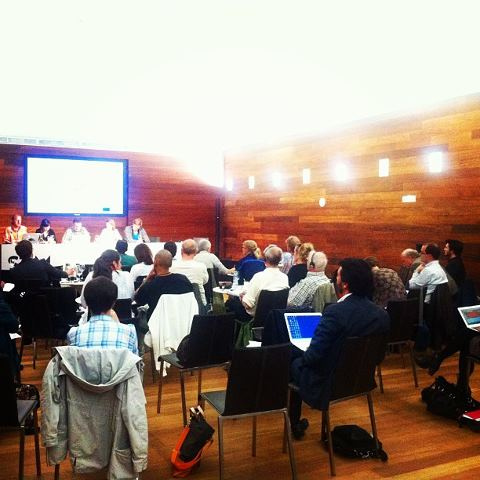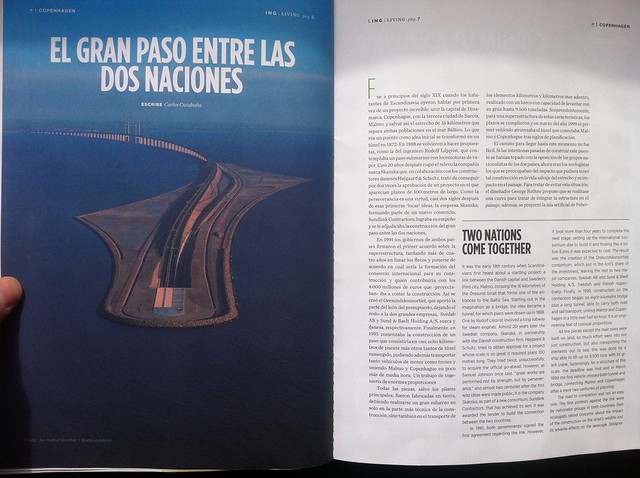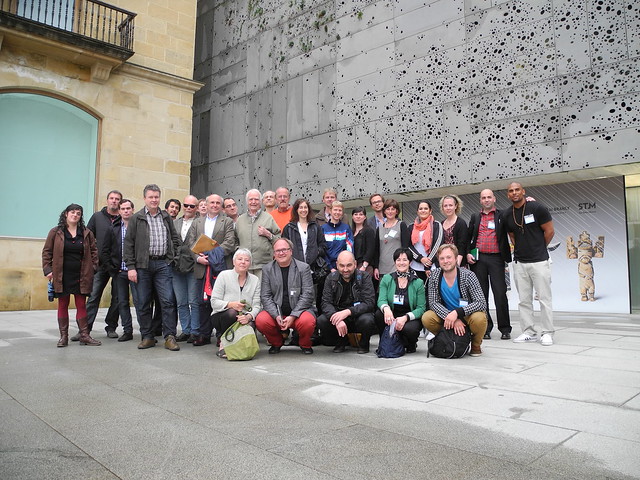
28 Apr Social Innovation Methodological Workshop > Basque & Oresund Connection in San Telmo Museum (St Sebastian – Basque, Spain)
Following up with the Oresund City-Region and trying to empirically compare the Basque Country and the Oresund City-Region as a dissemination activity of the Future of City-Region <> Comparative Territorial Benchmarking project, Fredrik Björk and myself arranged a Methodological Social Innovation Workshop driven by Action Research at San Telmo Museum, in St Sebastian for 8th May, 2013.
—
After the initial framework presentations, ten project’s presentations (five from each European region, respectively Basque & Oresund), we had a short open discussion and afterwards we went to the Old Town of Donostia. The same motto in my mind as in 2011 “same questions, different locations”. The most important thing, even today, is to look for the right questions instead of trying to answer them quickly and in a rush with no collective direction.
To build up social innovation among social agents requires a deep social transformation imperative whereas understanding how territories behave is crucial beyond quantitative data and political statements. For any kind of questions the solution requires collective inteligence, and to for that we require comprenhension about our reality and other’s ordinary territories. We need to keep on looking into the issues on the streets.
#HanIzanikHonaNaiz
—
3 main insights to keep on going with the research:
1.- Much of the discussion about territories and social innovation revolves around the “best” forms and the “right” scale (Herod, 2012) of governance, implying changes to the ways in which the conventional main variables institutions, hierarchy and territoriality interact to produce and operate regions as part of hierarchical arrangements of territories.
2.- Therefore, social innovation processes, rather than fixed structures, in region building means that negotiations between actors are the main mechanism behind such network-based, relational territorialisation.
3.- To sum up, the need for combining theory (indeed, several theories) and practices in regionalization policies and projects (I would add, top-down institucionalized and bottom-up extra-official grassroots projects clashing), if they are to be used as drivers of economic & social development was highlighted yesterday, not only around the Oresund between Denmark and Sweden but also in the Basque case in between Spain and France. Made by @Euskal_Hiria
Basque & Oresund Connection #socinn Methodological Workshop took place in the @SanTelmoMuseo @Euskal_Hiria
- Basque and swedish/danish social scientists and entrepreneurs will join and work together carrying out projects in order to link Basque & Oresund european regions for civic society’s activation to overcome the crisis towards transition.
- Tak tak to all the participants coming from Malmo and Lund mainly. Specially those presenting projects: Jan, Ingemar, Martina, Jessica and Andre.
- Euskal eta suediar/danimarkar erakundeetako gizarte zientzilari eta ekintzaileek bateraturik, Gizarte Berrikuntzako tailer batean lan egingo dute elkarrekin. Donostian proiektuak partekatuz, trantsizioa erdietsiz krisia gainditzeko europar bi hiri-eskualdeen lankidetza bidez, gizarte zibila aktibaraztea de xede nagusi tailerrak.
- Eskerrik asko Zumaia, Aretxabaleta, Astigarraga, Bilbo eta Zamudio-tik etorri zineten partehartzaile eta aurkezle izan zareten: Jon, Iraitz, Santi, Jose Luis eta Ikerri bereziki.

In my way back to Oxford, just in the aircraft of Vueling while having a quick look to the magazine Ling I bumped into the Oresund case again (!). I thought “it is in fashion!”
Just after reading the heading:
“el gran paso entre las dos naciones” a great path in-between two nations…
I strongly started thinking we really need another approach when words are using careless and the meaning is mainly the way we watch/understand the reality
Why not?
an emergent regions in-between two states.
As @Euskal_Hiria
#tbc



Sorry, the comment form is closed at this time.